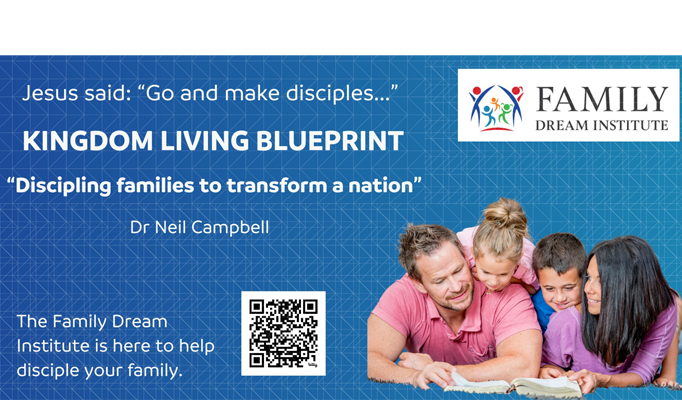
Worldview Series Introduction
In a time when truth is often treated as relative and followers of Jesus face the defining question: ‘What lens are we using to see the world?’ research from Barna and the University of Arizona reveals a troubling reality that 85 percent of Christians today hold a pluralistic worldview, blending secular values with biblical faith. The result? A faith that looks more like culture than Christ.
A biblical worldview is not just a set of beliefs – it is a mental map; a framework rooted in the objective truth of God’s Word (2 Timothy 3:16). It shapes how we see God, ourselves, others, and the culture around us. It determines how we live, lead, raise our families, vote, and respond to the moral confusion of our day. This new series will explore what it means to live with a Kingdom mindset in a post-Christian world. We will examine the foundations of biblical truth and how to anchor our lives in God’s unchanging Word while navigating the swirling currents of a pluralistic culture.
A Kingdom Blueprint for Families
The format we will use in this series follows a timeless blueprint found in Deuteronomy 6:6–7: “These commandments that I give you today are to be on your hearts. Impress them on your children. Talk about them when you sit at home and when you walk along the road, when you lie down and when you get up.” God’s design for discipleship begins in the home. If we don’t intentionally disciple our children, the world will do it for you. Every day, our kids are being shaped by media, school, peers, and social platforms about how to look, think, live, and love. As they grow, the volume and velocity of these voices only increase. That’s why passive parenting is no longer an option.
The Parenting Faith Research Project reveals that many families are in crisis today because they’ve handed off the responsibility of spiritual formation to the culture. Instead of “diligently teaching” their children God’s truth, parents have allowed the school system, entertainment industry, and digital influencers to become the primary mentors. We often hear statements like, “I’m not going to force religion on my kids they can decide when they’re older.” That will be too late. Our children are being bombarded daily with messages rooted in secularism, relativism, and woke ideology.
That’s why this series begins with us as parents and grandparents. Before we can disciple the next generation, we must first walk closely with Jesus ourselves. We must understand what biblical values are, and how to live a Kingdom lifestyle in our daily choices, attitudes, and conversations.
Each lesson in this series will follow a simple, effective blueprint:
- Kingdom Activity to Captivate – An engaging, real-life action or conversation starter that captures your child’s heart.
- Kingdom Truth to Motivate – A clear biblical principle that builds the foundation for a lasting worldview.
- Kingdom Application to Activate – A practical next step that helps activate Kingdom living in their everyday life.
This is how we build a legacy of faith – not by chance, but by choice. Let’s take up the call to raise sons and daughters who know the truth, walk in truth, and live it out with courage in a confused world.
Kingdom Values
As we celebrate Canada Day this month, it’s important to remember that Canada’s foundations were deeply rooted in biblical values of truth, justice, and the inherent dignity of every person made in God’s image. Over the past 40 years, however, we’ve witnessed a cultural shift. “Canadian values” have increasingly emphasized diversity, equity, and inclusion frameworks which, while aiming for fairness, often blur the line between tolerance and compromise.
So how do we respond as Kingdom-minded believers? While this worldview seeks to affirm the dignity of every person, a goal we can support, it often does so by sidelining biblical truth. As followers of Jesus, we are called to love people deeply (Romans 12:9) and live by the truth courageously (2 Timothy 3:16). These two are not in conflict.
We love people without surrendering truth. Jesus modeled this perfectly. He welcomed the sinner but never affirmed the sin. Living a biblical worldview means we treat every person with respect and compassion, while remaining anchored in God’s unchanging Word. It’s not either/or, it’s both grace and truth (John 1:14).
In a pluralistic culture, we don’t impose – we influence. We live differently. We raise families who reflect Kingdom values. We speak truth in love. And we shine light where there is confusion.
Let’s recommit to being people of conviction and compassion, faithful to Christ, while loving our nation enough to stand for what is eternally true.

Leave a Reply